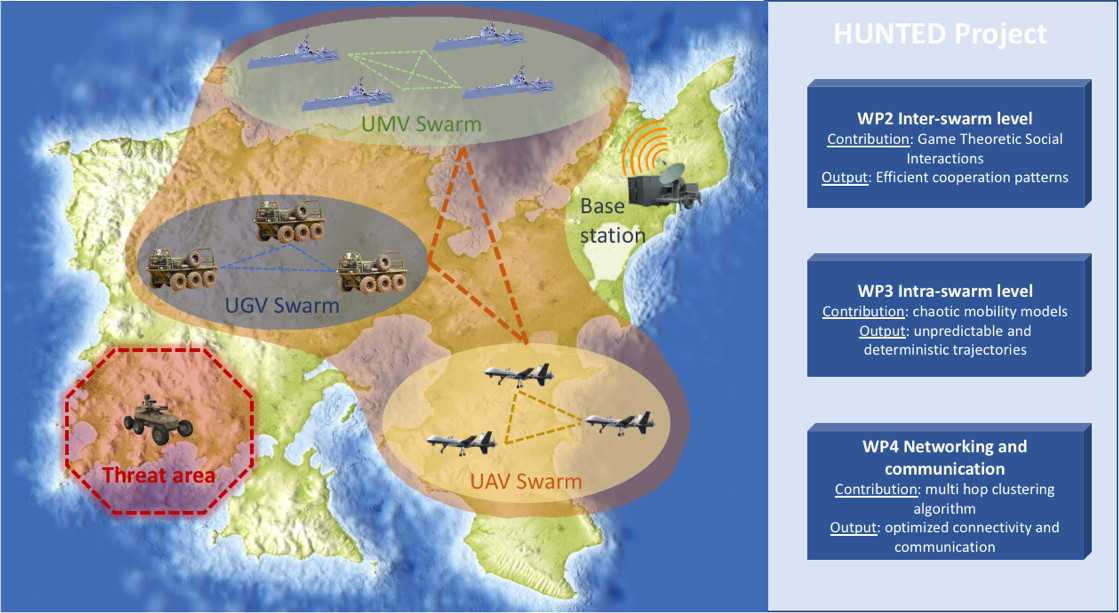Goals
The HUNTED project (Heterogeneous multi-swarms of UNmanned auTonomous systEms for mission Deployment) aims at designing a novel generation of mobility models for heterogeneous multi-swarms of Unmanned Autonomous Systems (UAS) for surveillance and tracking of imminent threats. Such swarms are composed of several vehicles moving in an autonomous and coordinated manner in the air, on the ground, and in the sea. Each of them can embed different sensors (e.g., video, infrared, radar) ensuring complementarity and resilience. While the UAS are conducting their mission in a fully autonomous manner, connectivity to one or multiple base stations is optimized which will ensure an efficient and reliable collection of data for further post processing and decision making by the ground forces.

Emerging artificial intelligence approaches sparked a new revolution in terms of autonomous behaviours. However, few of these techniques have been employed to create intelligent mobility models for UAS, especially when considering heterogeneous devices. It is known that species organized as swarms develop a collective intelligence making them more able to survive in hostile environments.
The HUNTED project therefore aims at developing novel and highly efficient nature inspired mechanisms hybridized with chaos theory and clustering techniques for the efficient mobility management of heterogeneous swarms of UAS in a fully distributed way for different types of missions. These disruptive models will be designed, and their performance validated and evaluated using a comprehensive three steps approach:
- High-level theoretical simulations
- Physical simulations
- Real field tests
These models will stand out thanks to a first of its kind integration of state-of-the-art solutions that will permit to optimize the missions’ objectives and resilience while ensuring unpredictable yet deterministic trajectories in the different swarm levels.
Acknowledgements
This material is based upon research supported by the Office of Naval Research under Award Number N62909-18-1-2176.